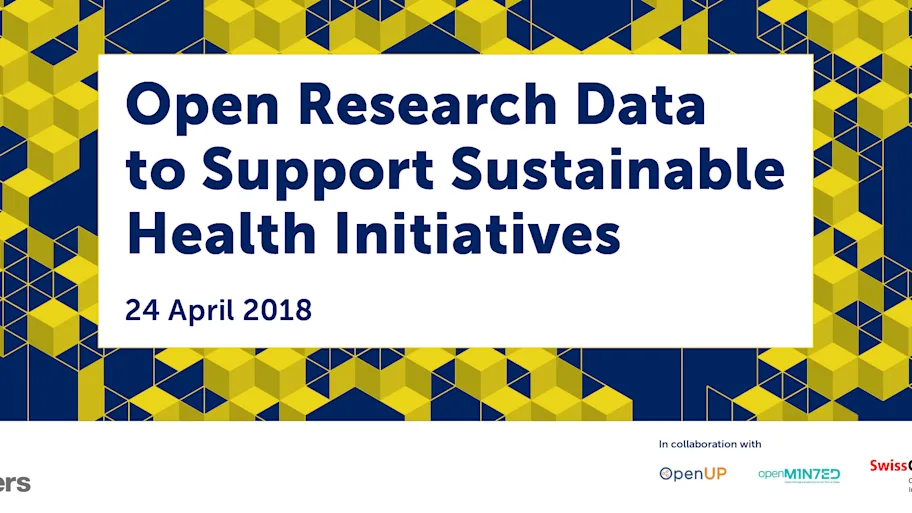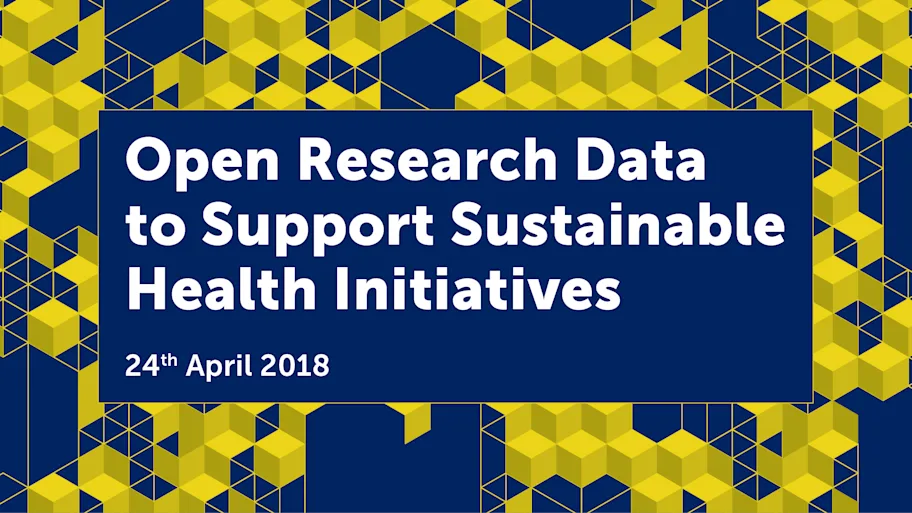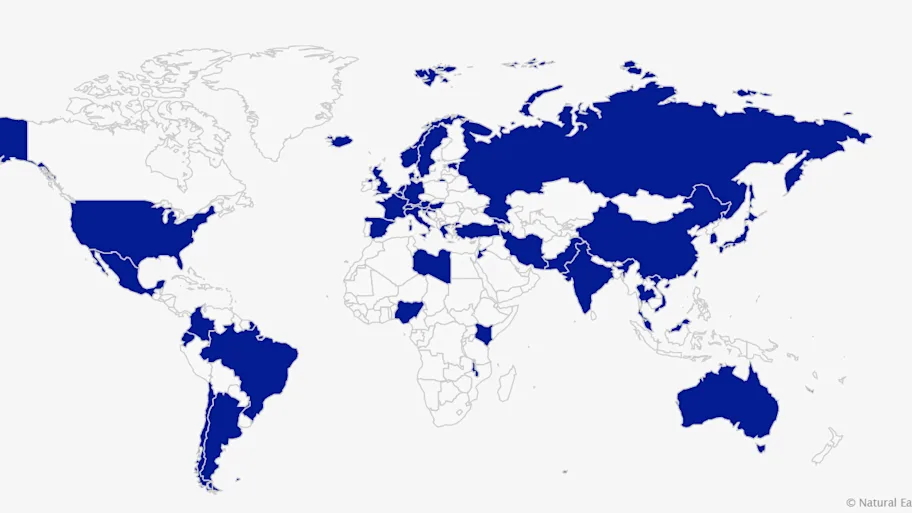
- Science News
- Frontiers news
- Elizabeth Wiltshire – Towards better policies for better lives
Elizabeth Wiltshire – Towards better policies for better lives
Author: Lucy Thompson
Elizabeth Wiltshire is the Program Manager for Digital & Space Policy at Friends of Europe. Elizabeth is also an Associate Fellow on technology policy at the Tony Blair Institute for Global Change and a member of the steering committee for The Brussels Binder. Today, we discuss Elizabeth’s journey into policymaking, the importance of intersectionality, and the future of digital policy.

Photo credit: Elizabeth Wiltshire
What was your motivation/inspiration that led you to your current role?
“So my career path was never totally planned out. I'm just very lucky. I went to university a little bit late, didn't really know what I wanted to do, and ended up studying politics and international relations at the University of Sussex. It was just after the general election in the UK, which spurred me to pursue a career in it. Towards the end of my degree and after hearing a talk by Caroline Lucas, the Green member of parliament at my university, I realized I did really want to be in the political world. Maybe not initially in the more formal side, an MP’s office, for example. I wanted to focus on working from the outside and influencing inwards to make a change.
“So this led me to carrying out an internship with an organization called The Democratic Society. I worked in a couple of different offices and a number of different roles with them. Their main focus was on participation and engagement, looking at democratic innovation and how you can better bring people into the decision making that affects their lives. I grew extremely passionate about this, and this led me to Brussels. People are taking more and more of an interest in democratic innovation. I ended up working more and more on digital focused projects - I really saw that there was an opportunity to marry those kinds of participation and engagement with the real need to start taking action on digital policy and human rights, and making it work for people rather than just for big tech or private organizations, for example.
“This led me to where I currently work as a Program Manager for Digital and Space at Friends of Europe, which is classed as an action think tank rather than an academic one. The organization focuses on bringing together more people. This is the same for our sister organizations called Debating Europe and Debating Africa, which focus on bringing people from those continents, from different countries, backgrounds, ages, genders, etc. into policy debates and use their knowledge and opinions to make policy recommendations.”
What projects are you working on at the moment?
“At Friends of Europe, we have a couple of big projects going on. One of our key initiatives in the digital program of work is called Connected Europe. It is about maximizing digital connectivity across Europe, and further afield, looking a lot at the future of 5G and how it was such a priority in the spending of the resilience and recovery funds that were given up by the EU, and further, how that will change society and the way we interact digitally. In light of COVID-19, we have also been exploring how the pandemic has accelerated the shift to the digitalization of society, and how we can make the most of the opportunities that presents. But also, how we need to deal with the challenges of that, and make sure that no member of society is left behind; everyone's brought along to the connectivity journey. So that's looking a lot of rural connectivity, for example. We're also looking at anytime, anywhere education. Not just for young people in school, but also adults who need to be brought up to speed with digital advancements to be able to participate in digitalized society.
“Outside of my day job, I am an Associate Fellow at the Tony Blair Institute, which focuses on policy changes internationally. For instance, I case studied universal internet access in one of my reports which highlights the critical role of stable and easy access to the internet, and how quickly we are transitioning to a society where it's necessary for everyone to have that to participate. Especially when we're talking about things such as social security being carried out digitally.”
What is The Brussels Binder? As a member, can you talk more about the importance of improving gender balance and the inclusion of diverse voices in policy debates?
“Yes, I'm on the steering committee for The Brussels Binder, and also one of the chairs of our events group. The Brussels Binder is a non-profit, volunteer organization focused on bringing gender equality into policy spaces. Primarily, it was about eliminating manels (a term coined to describe all-male panels and used to highlight the exclusion of women subject-matter experts) in Brussels, making sure that you're having equal representation of women across sectors: in events, policy, discussions, and so on. And now it has become a wider organization, looking across Europe, but also trying to make sure that gender equality is intersectional. We're not just focused on our gender balance, but also racial equality, representation of the LGBTQIA+ community, and more, and we're doing some really interesting work.
“Originally, it was a database online where anyone who identified as female or non-binary could register themselves as an expert in various different topics, so that events and panels could source experts ensuring gender representation. We now also carry out training and workshops, to ensure gender equality and focus on the empowerment of women in the policy space. We hold film screenings and other events, which are really exciting as well. Representatives of Brussels Binder talk on panels and at public events about the importance and the need to really still focus on this issue, because I think there's a lot of lip service paid to diversity and equality but there is not always absolute gender or racial representation at these kinds of events in many spaces.”
What needs to change to ensure diverse voices are being heard in policymaking?
“My background is in democratic innovation and participatory democracy in particular. I think we have to start bringing a wider range of voices into these conversations and I don't think that can just be done from polling or focus groups, or voting in elections.
“Possibly the most famous example of something like that was the Citizens’ Assemblies that took place in Ireland that shaped the white papers that were then voted on in the referendums on their constitution. Legislations such as equal marriage and abortion rights were decided by Citizens’ Assembly, and then both were voted through positively. Another example of this is the Conference on the Future of Europe , which is currently taking place across the whole of the EU, covering all policy areas, and really involving people from all EU countries and different representative groups of people in terms of age, ethnicity, and gender identity, and bringing these people into shaping the decisions that will be taken by the EU institutions going forward.
“I feel that so many people are not engaged in traditional politics as it's not something that represents them, and so they might feel disenfranchised or left to one side. And I really think the solution is bringing in a really wide range of voices into policy debates, making sure they are representative of the people they are governing and involving them and using their lived experience, opinions, and ideas. There is the assumption that the average person isn't smart enough, or doesn’t have the technical knowledge or ability to join in these debates, and that we should leave it to elected politicians. But actually, if you give people the time, access to resources and experts that elected policy-makers have, why should they not be able to make informed decisions as well? After all, they're the ones that know what their communities and societies need.
“When you look at the positive experiences that people have from engaging in these processes, but also the successful, popular, effective results that they deliver, it seems sensible to me to include that. Don't get me wrong, it's still an area that requires a bit of this experimentation. There's no ‘one size fits all’ process and there is still room for developing and growing the methods. But, I think, it's as a concept that will generate better policies and decisions that affect people's lives.”
What advice would you give to young people driven to make an impact in the field of policy?
“One piece of advice that I would give is you don't have to go into the things that may immediately spring to your mind when you think about policy i.e. working in an MP’s office, a public affairs company or in local government, for example. Instead look at the non-governmental organizations and find one with an objective that speaks to you. Politics and policy are so vast, so I’d say finding a niche that you are passionate about can be a really interesting route. Also, it's never too late for anyone to enter it should they wish to with any kind of background. I think that no matter what you've worked in or done before, you will have an interesting angle and perspective to bring to the industry because it applies to everything. You don’t have to study politics to get into policy.”
Focusing on an area of your expertise, in an increasingly digital era, how have you seen digital data and tools influence democracy and democratic practise?
“This is a broad question, because you can approach it from a number of angles. One would obviously look at the more negative and controversial aspects such as how social media and the rising disinformation has affected polarization and populist movements and the effect that they've had on democracy, voting intentions, and the press. It’s a very hot subject. But I think it's one that needs further examination, because, for example, we're starting to realise now that things like AI aren’t inherently positive or negative for democracy, but very much can be used in a way which is either.
“The second aspect, I'd say, would be things like E-democracy. Countries such as Estonia or Taiwan are very far ahead in this area through including digital tools for immediate interaction with democratic processes such as online voting. I think we are definitely moving towards E-democracy, at least in some capacity. We've seen how much of our interactions with the British government can now be done online through GOV.UK. And there have been lots of experiments, certainly across Europe, with things like online voting as well. I think there are two interesting things to consider there. The first is that not everyone has access to connectivity, literal hardware, or software to engage meaningfully with democracy through platforms or tools. But also not everyone has the necessary skills to do so in a way that reflects their actual needs and desires, or the empowerment to make technology work in a way that serves them best. By its very nature, democracy means that absolutely everyone needs to have access to something, so we can't go entirely towards that module until everyone does. Also, there has not been a way to manage things such as online voting as securely as people would like. There's a lot of talk about using Blockchain, which is the same technology that's used for crypto currencies. But, as far as I'm aware, there's been no major breakthroughs at a level that people are satisfied with.
“The last thing that I would say in terms of the way that digitalization is influencing democracies, is the way that utilization of technology within society is so rapid, particularly as displayed by the impact of COVID-19. I think it will just be very interesting to see how the public sector manages its relationship with the private sector, as the private sector grows in power. Companies such as Microsoft, Alphabet, Amazon, Meta have grown in enormous power, but also their influence on society is so vast in the way that it touches every part of our lives. But it all remains to be seen. In terms of the digitalization of society, we still have an infinite way to go, I suppose.”

Frontiers is a signatory of the United Nations Publishers COMPACT. This interview has been published in support of United Nations Sustainable Goal 5: Achieve gender equality and empower all women and girls.






